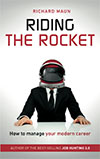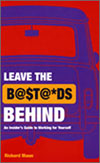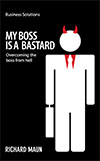better business blog
Tips and stories to add value to you and your organisation

Is Being Competitive Really So Good?
People like to win. History is written by the winning side, so being on the losing side can hurt twice.
Not only do you suffer the ignominy of being beaten, but you then have to put up with ‘true accounts of our victory,’ which paint you as weak and disorganised.
These overlook the heroic efforts you made, the hours of training and the fact you only lost because of some unlucky event, such as rain stopping play at a crucial moment.
Business books love to celebrate winners and encourage us to go out in the world and compete.
Nobody wants to be a loser in business and clever people work hard to ensure they are always first across the line.
However, smart people think about what competition means and when competitiveness can be counter-productive.
Nearly 20 years ago I learned a painful lesson in this. When reorganising a shift pattern I wanted my factory staff to work 9-to-5 as this would make it easier to manage them.
They wanted to work 7-to-3 and finish early. I said ‘no way’ and held out for victory.
My boss asked me what I wanted and without thinking I blurted out that ‘I want to win!’
He gave me a cool look and asked how winning would help his business, if it annoyed the staff? Hmm… that hadn’t occurred to me. Fair point.
I decided then that me winning was actually me being competitive, and I was losing sight of the business aims, which was productivity.
After a silence and a long think I said I would reconsider. I did. The next day I talked to the staff and said ‘ok let’s do it your way, but if the production run isn’t completed by 3pm then we will do it my way.’
Everyone agreed and the new 7-to-3 shift worked like a charm.
Being competitive meant being stubborn. It meant not seeing the strategic picture and instead focusing on narrow tactical goals.
I learned my lesson.
We can be too competitive with our colleagues and can push them too hard. We can do the same with ourselves and easily over-work, instead of letting go of some opportunities in order to take a break and rest and lead a more healthy life.
We can’t service all the people all the time and yet many competitive people try to do that. They may be clever, but are they smart?
Smart people know that business is about pace. Maintaining a steady pace, with regular breaks and time off to rest is much better than going helter-skelter all week and then getting over-tired and stressed.
We have to learn to set realistic goals and allow space for other people’s needs and for our own too.
Being competitive (to keep winning more work) can give us an advantage in business and yet we can burn out and that then lets everyone down.
This week take a fresh look at your business goals, your working hours and your stress levels. Ask yourself if it’s time to ease back on being competitive?
Be kinder to yourself and to those around you. Go for a walk and smell the flowers and calm down. Business is great and life is greater.
Is being competitive really so good? Answer: Not always. It can hurt you if left to run unchecked.
Next week: Does Coaching Work?
e-publishing
Click icon for details


recent posts
browse archive
books
Click cover to view details on Amazon
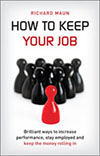
How to Keep Your Job
Brilliant ways to increase performance, stay employed and keep the money rolling in
Published 2011 Marshall Cavendish
208pp
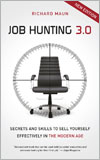
Job Hunting 3.0
Secrets and skills to sell yourself effectively in the Modern Age
Published 2010 Marshall Cavendish
260pp

 RSS
RSS